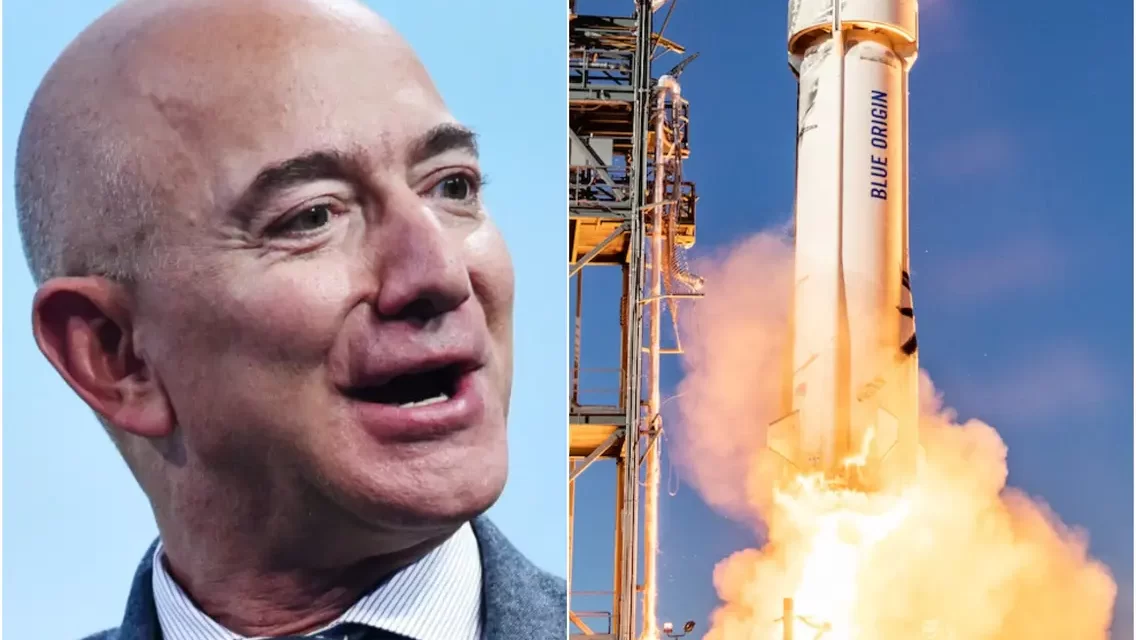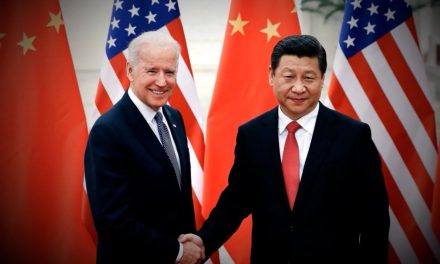– – Monday, November 22, 2021
With its rapid development of advanced space technology, China’s space agency is pressuring NASA in a way not seen since the height of the cold war. Many even believe that China could supersede the United States by the end of the decade. Surprisingly, though, the biggest obstacle to continuing NASA dominance isn’t coming from abroad, but the greed of one of the world’s richest men — Jeff Bezos.
For months, Mr. Bezos, a person who symbolizes the triumphs and failures of capitalism more than most, has attempted to sue his way into industry relevance. NASA denied his private space firm, Blue Origin, a contract in the spring to develop a moon lander for America’s return to the lunar surface, so he decided to launch a lawsuit against his country in response.
Mr. Bezos couldn’t win the NASA contract on merit because he charged millions of dollars more than his competition. His Plan B of having his home-state U.S. senator force NASA to select a second contractor for the mission, which would have cost taxpayers $10 billion, also failed. So, his strategy of getting more money from the public treasury hinged entirely upon this NASA lawsuit.
After months of legal maneuvering and a prolonged pause to NASA’s lunar program, the court ruled against Blue Origin, allowing the development of the lander to continue. But the damage has already been done.
At a recent press conference, NASA Administrator Bill Nelson announced that NASA would have to delay the landing a year because of the lost development time it incurred because of Mr. Bezos’ lawsuit holding up the process for months on end. The delay puts America at risk of being leapfrogged by China’s lunar program, which many experts now believe is highly capable of putting a man on the moon within the next three to four years.
Thank God Mr. Bezos wasn’t ludicrously wealthy in the 1960s. Americans may have watched Alexei Leonov take one small step for man instead of Neil Armstrong at the expense of all mankind.
China has decided that building massive dams and railroads connecting countries under their new silk route idea-One Belt One Road Initiative — is not enough. They now wish to take over the space in outer space. Last Summer, China unveiled plans to launch a mile-long fleet of solar panels into space to return energy to earth by 2035, and the system could have the same power as a nuclear power plant by 2050. China is hoping to have a massive space station and capture solar energy, tourism, mine asteroids and also have gas stations. They are calling it a megastructure that should be able to do these things. One would say they are in an awful hurry to have space dominated by China. Therefore, China is keen on overtaking NASA and, in turn, the United States and is working hard in their research facilities to corner the market for special parts required for different space expeditions.
For the Chinese, landing on the lunar surface would mark an unmatched triumph, at least until someone reaches mars. With the global community watching the authoritarian government take on America’s influence, stopping this symbolic victory for the communist regime alone is enough to justify the massive expense of stopping it.
But of course, the Chinese occupation of the moon would be more than a symbolic victory over the west.
The Chinese have already agreed to develop a moon base with the Russians. National security experts have raised concerns that occupation of the moon by two of our biggest rivals is likely to have geopolitical consequences in the years ahead, including but not limited to anti-American military operations from above.
For years, officials from both political parties have understood it’s in the U.S.’s best interest to reach and occupy the moon before the Chinese.
The Trump administration set out an ambitious timeline to culminate with a landing before the end of this decade. Now, President Joe Biden is facing the reality of running a reelection campaign in the shadow of the Chinese planting the red flag in the lunar ground.
The magnitude of Mr. Bezos’ selfishness cannot be understated. The billionaire accomplished many incredible things with his time building Amazon, and many hoped he would use his talents to benefit the space industry. Instead, however, he’s prioritized his selfish desire for more federal contracts over everything else, including the U.S.’s ambitious moon timeline.
























